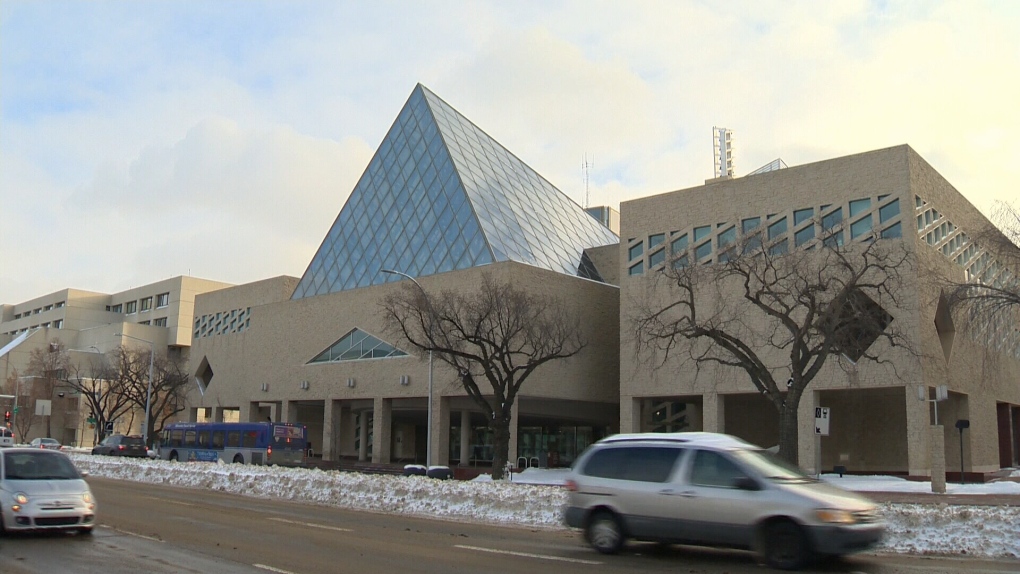Edmonton projecting $67.8M surplus, council considering 'Band-Aid' investments
 Edmonton City Hall in a file photo
Edmonton City Hall in a file photo
The City of Edmonton is projecting a small surplus this year of nearly $70 million, with council mulling how best to incorporate that money into a challenging budget cycle.
After better-than-expected cost-savings and higher interest returns on investments, the city says Edmonton is projected to end this fiscal year in the black with $67.8 million. That projection comes after administration received its third-quarter financial results.
The finalized amount will be known by the end of March once the city provides end-of-year financial statements. For budget deliberations over the next few weeks, councillors will have to decide what to do with around $42 million of the surplus that is available.
"In the grand scheme of things of a $3.2 billion budget, it's a bit of a drop in the bucket," said Coun. Keren Tang, who represents Ward Karhiio.
"It's a bit of a Band-Aid in the near term, and we need it because we are bleeding."
Mayor Amarjeet Sohi said on social media Thursday afternoon that he would prefer to invest the "benefits of our good fiscal management" to build more affordable housing, "take bold climate action," and expand the city's industrial tax base.
"I aim to tap into the city's smart use of funds to make sure your top priorities are funded," Sohi added.
Many major initiatives like on-demand transit, the Touch the Water Promenade, Anthony Henday Drive interchange at 135 Street and improvements to snow clearing remain unfunded by the proposed municipal budget that is already calling for four years of 3.9 per cent property tax rate increases.
Tim Cartmell, Ward pihêsiwin councillor, says the city has to be prudent with how it spends the surplus to not add further operating costs to future year budgets where a surplus is not guaranteed.
"Interest rates went up, we gained more money because of it," Cartmell said. "But on the other side of the ledger, what we are going to talk about in the next three weeks are a number of projects, a number of initiatives that require more money to support.
"If we borrow more money, that money is more expensive, loan costs are going up. So there's a bit of a yin and a yang here, so I would not get too carried away."
His concern is that if the whole surplus is spent on a new capital project, that would require the city to borrow money and a further $5 to $6 million in debt servicing costs — which approximately amounts to a 0.3 per cent property tax.
"It might help with some of our choices, but it does not solve our problem over the next three weeks," Cartmell added.
- 'Budget '23 is coming': Toews non-committal on Edmonton's ask for more help with shelter beds
- 'People are hurting': Edmontonians drop off donations for holiday food drive
Tang said the province revealed a projected surplus of $12.3 billion, which could make more of an impact on helping Edmonton deal with homelessness.
"I don't know what amount of money is going to resolve our challenge because the need keeps rising," she said. "At the same time, there are some pieces that need some immediate solutions."
CTVNews.ca Top Stories

Widow looking for answers after Quebec man dies in Texas Ironman competition
The widow of a Quebec man who died competing in an Ironman competition is looking for answers.
Tom Mulcair: Park littered with trash after 'pilot project' is perfect symbol of Trudeau governance
Former NDP leader Tom Mulcair says that what's happening now in a trash-littered federal park in Quebec is a perfect metaphor for how the Trudeau government runs things.
World seeing near breakdown of international law amid wars in Gaza and Ukraine, Amnesty says
The world is seeing a near breakdown of international law amid flagrant rule-breaking in Gaza and Ukraine, multiplying armed conflicts, the rise of authoritarianism and huge rights violations in Sudan, Ethiopia and Myanmar, Amnesty International warned Wednesday as it published its annual report.
Photographer alleges he was forced to watch Megan Thee Stallion have sex and was unfairly fired
A photographer who worked for Megan Thee Stallion said in a lawsuit filed Tuesday that he was forced to watch her have sex, was unfairly fired soon after and was abused as her employee.
Amid concerns over 'collateral damage' Trudeau, Freeland defend capital gains tax change
Facing pushback from physicians and businesspeople over the coming increase to the capital gains inclusion rate, Prime Minister Justin Trudeau and his deputy Chrystia Freeland are standing by their plan to target Canada's highest earners.
U.S. Senate passes bill forcing TikTok's parent company to sell or face ban, sends to Biden for signature
The Senate passed legislation Tuesday that would force TikTok's China-based parent company to sell the social media platform under the threat of a ban, a contentious move by U.S. lawmakers that's expected to face legal challenges.
Wildfire southwest of Peace River spurs evacuation order
People living near a wildfire burning about 15 kilometres southwest of Peace River are being told to evacuate their homes.
U.S. Senate overwhelmingly passes aid for Ukraine, Israel and Taiwan with big bipartisan vote
The U.S. Senate has passed US$95 billion in war aid to Ukraine, Israel and Taiwan, sending the legislation to President Joe Biden after months of delays and contentious debate over how involved the United States should be in foreign wars.
'My stomach dropped': Winnipeg man speaks out after being criminally harassed following single online date
A Winnipeg man said a single date gone wrong led to years of criminal harassment, false arrests, stress and depression.

































